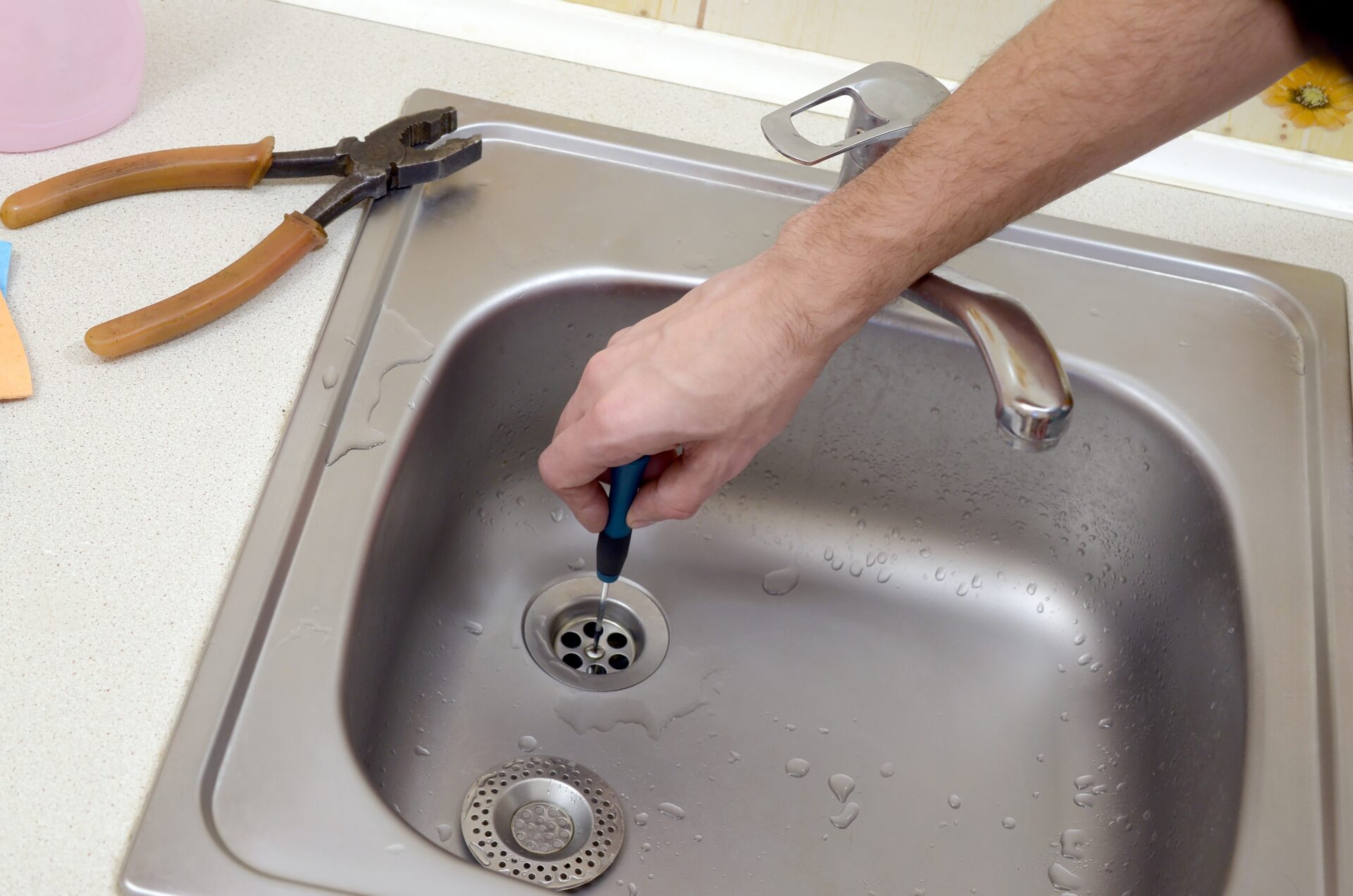
Few things put a damper on your day like staring at a pool of water in your sink. It bubbles, maybe drains ever so slightly, but isn’t going anywhere fast.
Have you been there?
When it comes to maintaining your plumbing system, keeping your drains clean and clear is essential. Clogged drains are inconvenient and a little smelly at best, and lead to major water damage at worst. So, what can you do?
In this blog, we’ll dive into the best practices for cleaning your drains effectively while preserving the health of your plumbing system.
Why Do Drains Clog?
Let’s start with the basics: understanding what actually causes your drain to clog in the first place.
Hair, soap scum, food debris, grease, and mineral buildup are the usual suspects. These materials accumulate over time, gradually narrowing your drain’s capacity until water can no longer flow freely.
Preventive Measures: The First Line of Defense
An ounce of prevention is worth a pound of cure, and this saying rings especially true in plumbing. Incorporate these preventive measures into your routine to minimize the chances of clogged drains:
- Use Drain Screens: Place screens or strainers over your drains to catch hair, food particles, and other debris before they can enter your pipes.
- Dispose of Grease Properly: Never pour cooking grease down the drain. Allow it to cool and dispose of it in the trash instead. You also might want to click over to this article for a full breakdown of which foods can (and can’t!) go down your garbage disposal.
- Regular Hot Water Flush: Once a week, run hot water down your drains for a minute to prevent grease buildup.
How To Clean a Clogged Drain without Chemicals
When it comes to cleaning your drains, it’s tempting to reach for harsh chemical cleaners. However, these can damage your pipes over time, plus harm the environment. Natural solutions are not only safer but also effective:
- Baking Soda and Vinegar: Pour half a cup of baking soda down the drain, followed by half a cup of vinegar. Cover the drain and let it fizz for about 15 minutes. Then, flush with hot water. As a side benefit, you can really entertain the kids with this one!
- Hot Water and Salt: Pour a pot of boiling water down the drain, followed by half a cup of table salt. Let it sit for a few minutes, then rinse with more hot water.
- Baking Soda and Salt: Mix half a cup of baking soda with half a cup of salt and pour it down the drain. Let it sit for several hours or overnight, then flush with hot water.
Mechanical Cleaning Methods
For more stubborn clogs, mechanical methods can be highly effective:
- Plunger: Use a plunger to create a vacuum and dislodge the clog. Make sure there’s enough water in the sink or tub to cover the bell of the plunger.
- Plumbing Snake: A plumbing snake, also known as an auger, is a flexible tool that can reach deep clogs. Insert it into the drain and rotate the handle to break up the blockage.
Professional Help When Needed
While DIY methods can work wonders, there are times when professional intervention is necessary. If your efforts don’t yield results or if you notice recurring clogs, it’s best to call in a professional plumber. Attempting to force a clog using excessive pressure can actually cause damage to your pipes.
FAQs
Q1: Will chemical drain cleaners damage my plumbing?
Chemical drain cleaners can be effective in breaking down clogs, but they come with risks. Many chemical cleaners contain harsh substances that can corrode pipes over time, especially older or weaker pipes. It’s best to avoid these products and opt for natural or mechanical methods instead.
Q2: How often should I clean my drains?
Regular preventive measures like using drain screens and weekly hot water flushes can significantly reduce the frequency of drain cleaning. However, if you notice slow drainage or recurring clogs, it’s a good idea to clean your drains at least once every few months.
Q3: Can I clean all types of drains the same way?
Different drains can have different requirements. For instance, kitchen sinks often deal with grease buildup, while bathroom drains are more prone to hair and soap scum clogs. Adjust your cleaning methods based on the specific needs of each drain.
Need a Local Plumber? Contact Accurate Plumbing & Drain Cleaning
If you encounter persistent clogs or need expert advice, don’t hesitate to reach out to us. Our plumbing experts are here to ensure your drains remain trouble-free and your plumbing system stays in top shape.
